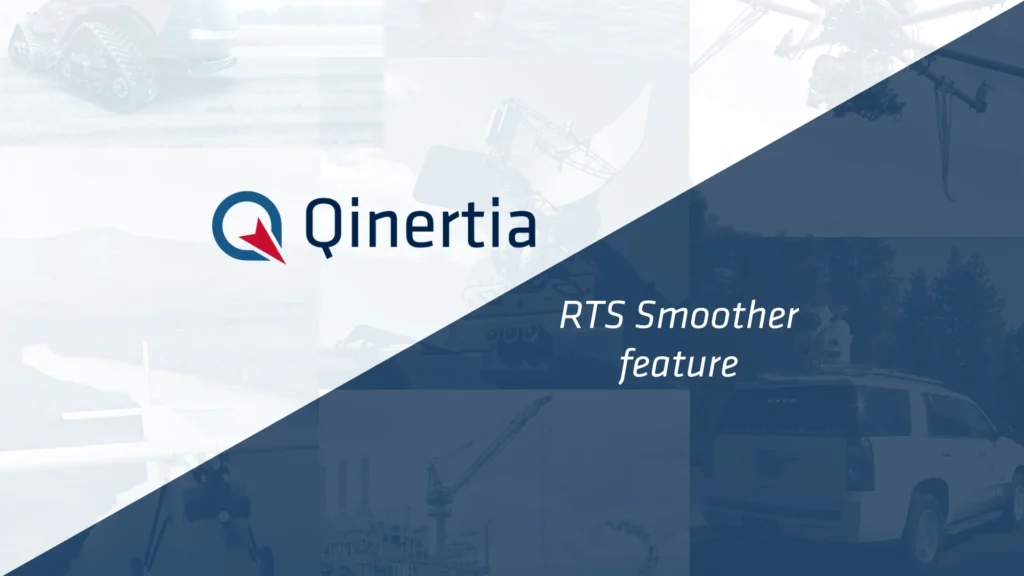In direct georeferencing the continuity of the position and attitude is crucial since the smallest jump can create residual errors and disgracious effect in the generated point-cloud products. RTS Smoother helps to address this critical need.
While Kalman filtering does a great job of estimating position, velocity, and attitude, it can still leave small inconsistencies especially in complex or highly dynamic environments. That’s why we’re excited to introduce the RTS Smoother, a powerful new feature now available in Qinertia 4.2.
What is the RTS Smoother?
The RTS (Rauch–Tung–Striebel) Smoother is an advanced backward smoothing algorithm used to refine state estimates after a forward Kalman filter. Named after its inventors H. E. Rauch, F. Tung, and C. T. Striebel, it enhances state estimation by incorporating future observations, reducing uncertainty and improving accuracy.
The RTS Smoother in Qinertia is an advanced processing option designed to refine your INS trajectory after the sensor fusion step. By applying the smoother, Qinertia removes all sharp transitions and sudden jumps, ensuring your final trajectory outputs are not only more accurate but also significantly smoother.

How it works
It operates after the standard forward and backward Kalman filtering phases. It leverages the entire dataset to minimize estimation errors, reduce noise in position, velocity, and orientation, and enhance the continuity of the output trajectory.
The RTS Smoother, implemented by SBG Systems, works on the covariance matrices, removing residual jumps that can exist between epochs at the end of each processing pass. Smoothing the covariances ensures that the final trajectory merge is also smooth, reducing inconsistencies without compromising absolute accuracy. This approach allows for a smooth trajectory output.
When to use the Smoother in INS processing?
In challenging environments, your data may have signal interruptions, multipath errors, or low satellite visibility (e.g. urban areas, forest, valleys). Enabling the RTS Smoother is a sure way to remove the jumps or jitters in your trajectory ensuring high-quality output. It’s especially beneficial for:
- Mobile mapping applications.
- Marine navigation.
- Any project requiring reliable, consistent, post-processed INS trajectories.
During troubleshooting or validating data quality, it’s recommended to perform an initial run without smoother to spot any potential data or processing problems. Once the data has been verified, a second run with the smoother can then be used to generate the cleanest and most accurate result.
How to enable the Smoother in Qinertia?
Ready to try our lever arm estimation tool yourself? Download the latest version of Qinertia under the “Download “section of your MySBG account. Once installed, simply log in with your MySBG account when starting Qinertia lever-Arm tool.
- Open the Project Settings.
- Navigate to the INS Processing section.
- Enable RTS Smoothing.
- Save your Project Settings and run your post-processing as usual, Smoother takes care of the rest!

With the addition of the Smoother feature, you now have greater control over the quality and accuracy of your trajectory data. Whether you’re working on high-precision projects or simply want cleaner, more natural, and professional results, this new tool ensures your outputs are as refined and reliable as possible.
To get more information about Qinertia, please contact us.
